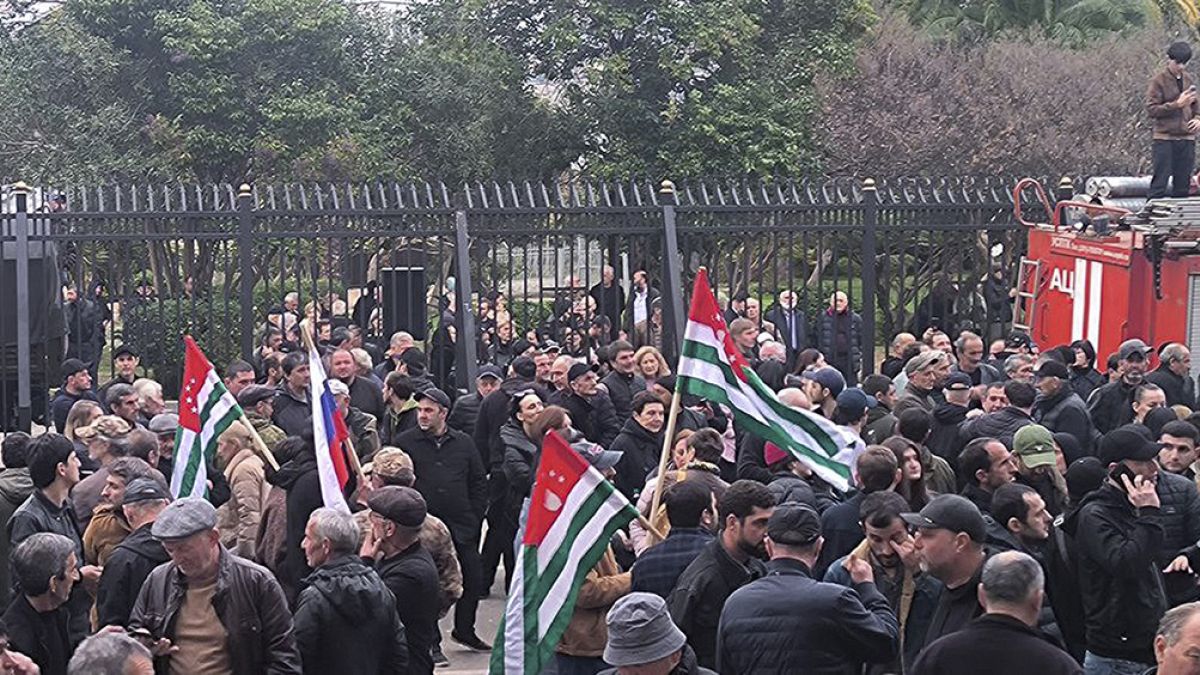Demonstrators in Abkhazia stormed government buildings to oppose a proposal allowing Russians to buy property, fearing it would inflate prices and increase Moscow’s influence.
Thousands of protesters opposing a proposal that would allow Russians to buy property in Abkhazia, a Russian-backed separatist region of Georgia, stormed the parliament and presidential offices on Friday.
Opponents of the property agreement argue that it would inflate apartment prices and increase Moscow’s influence in the region.
At least eight people were injured in the clashes in the regional capital of Sukhumi on the Black Sea, according to news reports.
The protests forced parliament to postpone the session as the demonstrators gathered outside the gates of the government compound.
Local media reports say MPs had earlier planned to discuss and ratify the controversial investment measure.
Instead, demonstrators rammed the parliament gate with a truck and streamed inside the grounds, throwing rocks at police, who responded with tear gas.
According to local reports, police left the parliament building, but demonstrators remained, demanding the resignation of Abkhazia’s president, Aslan Bzhania.
Demonstrators also stormed into the presidential administration building and vowed to remain there until Bzhania resigned and snap elections were called.
The president’s office later announced he was preparing an order to remove the measure from consideration.
The unrest had been building up since Monday following the arrest of five opposition figures at a similar demonstration. The arrests set off wider protests the next day, in which bridges leading to Sukhumi were blocked.
Abkhazia’s scenic mountains and Black Sea beaches attract many Russian tourists, creating strong demand for holiday homes.
Most of the region broke away from Georgia following a conflict that ended in 1993, and Georgia lost control of the remaining territory after a brief war with Russia in 2008.
While Russia recognises Abkhazia as an independent state, many Abkhazians fear that their region, with a population of around 245,000, is effectively becoming a client state of Moscow.
(Except for the headline, this story has not been edited by PostX News and is published from a syndicated feed.)

